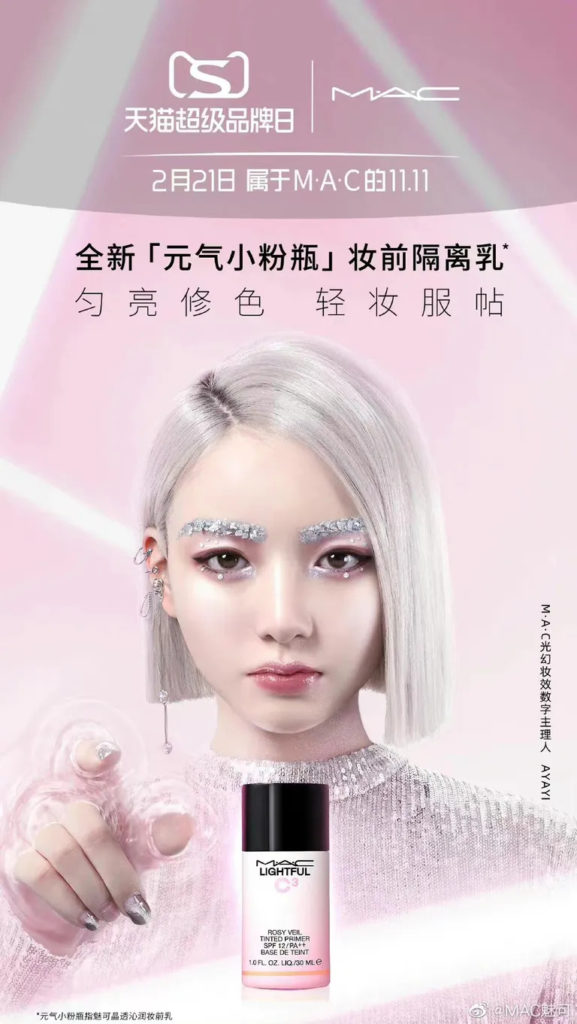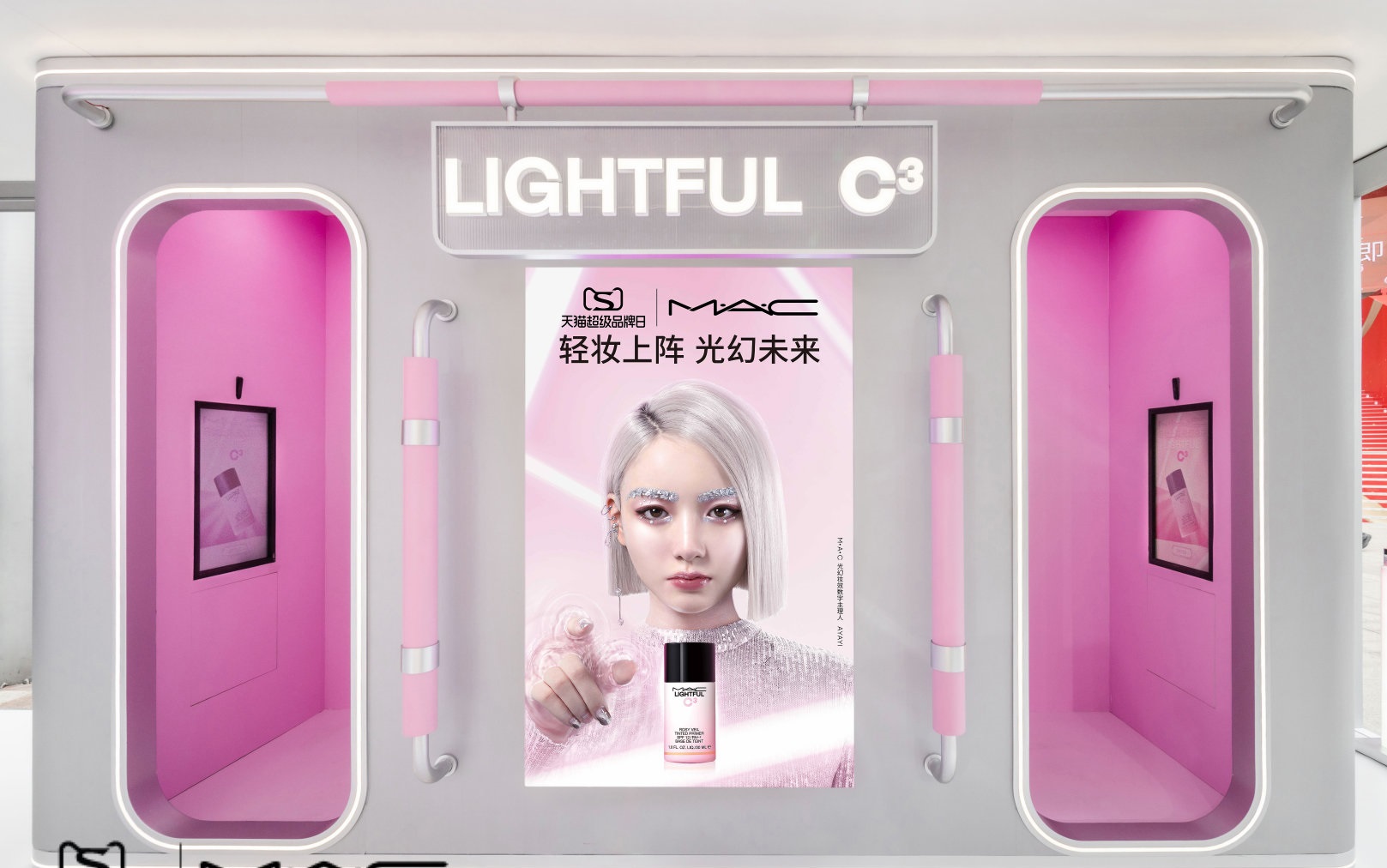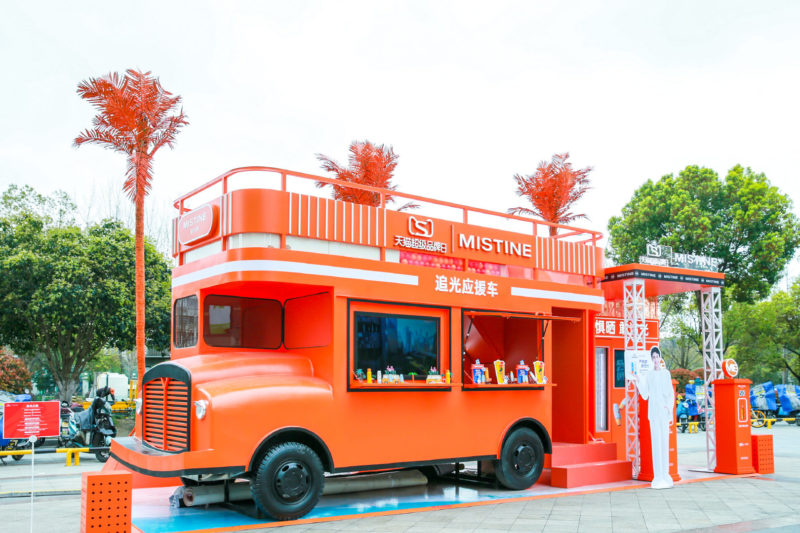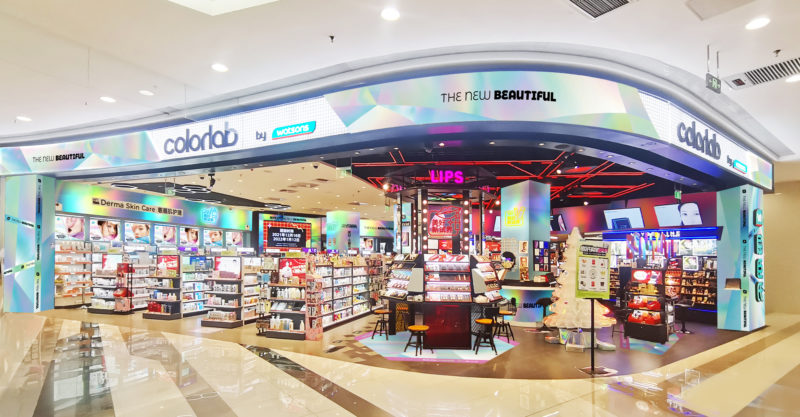Key Takeaways
- The emergence of new technologies, such as the metaverse and NFTs, is creating a slew of new opportunities, and luxury brands seem inclined to capitalise on these new tools in order to interact with young, tech-savvy Chinese consumers.
- Laneige, a South Korean cosmetics brand, and China’s first virtual male idol is an example of a metaverse campaign involving a popular virtual idol, to serve as a Brand Trend Experience.
- Ayayi, the metaverse beauty representative, has transformed into the digital master of light and uses M.A.C’s magical make-up effect, to interpret lightness without make-up and to highlight the shining of one’s own light.
The world’s second-largest beauty industry
The metaverse is a parallel, virtual world that exists independently of the real world, which is why it is so popular amongst Gen Z due to the high level of involvement found in this category.
The emergence of new technologies, such as the metaverse and NFTs (Non-fungible tokens), is opening a slew of new opportunities, and luxury brands appear eager to take advantage of these new tools to connect with young, tech-savvy Chinese consumers. With the metaverse’s reawakening of fashion and beauty, finding new ways to engage consumers in the impending digital future has become a corporate priority.
Luxury brands appear eager to take advantage of these new tools to connect with young, tech-savvy Chinese consumers.
China is critical to the success of beauty in this new frontier because it has the world’s second-largest beauty industry and a growing consumer base of digital natives. International brands have been actively collaborating with virtual influencers since last year.

There are several posts on Xiaohongshu’s platform about “Metaverse Makeup” sharing DIY tips on how to look like your favourite digital avatar, as well as popular hashtags like #AIGoddess and #MetaMakeup that have quickly emerged as beauty trends rising in popularity.
Laneige shakes hands with China’s first virtual male idol
Laneige is a South Korean cosmetics brand founded in 1994. Its name is derived from the French “la neige,” which means “the snow.” Since its launch in mainland China and Hong Kong in 2005, the brand has done well; in fact, the luxurious blue and white packaged products have won over many Chinese fans.
An example of a Laneige campaign is their official entry into the metaverse on 30 December 2021, when they specifically invited 川CHUAN (Chuan CHUAN), a popular virtual idol, to serve as Laneige’s Trend Experience Officer, claiming to have broken through beauty’s barrier.
The “hyper-realistic digital people” born from the metaverse concept have exquisite shapes, anthropomorphic body movements, and real people’s skin texture, making them the icon at the centre of the trend in non-pop culture, as soon as they are released.
CHUAN gained tens of thousands of followers on social platforms in less than three days, becoming the metaverse’s first male model.

“Chuan CHUAN,” which Laneige invited, made its first public appearance on the internet on 3 September 2021, and gained tens of thousands of followers on social platforms in less than three days, becoming the metaverse’s first male model. He is a trans-realistic and trans-dimensional Chinese man with different eyes and a friendly, natural face whose job is to make the connection between the metaverse and real life.
How M.A.C leverages China’s first meta-human Ayayi
Make-up brand M.A.C Cosmetics, or Art Cosmetics, is a Canadian cosmetics company. Its products are used for services and fashion shows by makeup artists all over the world. M.A.C Cosmetics has been a traditional retailer in China for over a decade, and its highly successful e-commerce launch on Tmall has helped the company achieve great success.
The brand’s approach was to create a pop-up shop capable of opening the metaverse during the Tmall Super Brand Day on 18 February 2022 and collaborated with Ayayi (China’s first virtual meta-human influencer), who used M.A.C’s magic and luminous makeup effect to create a magic trick and explore virtual makeup in the metaverse beyond reality.
Ayayi, the metaverse beauty representative, has become the digital master of light and uses the magical make-up effect of M.A.C, to interpret lightness without make-up and to highlight the shining of one’s own light, a delicate but powerful make-up base.
Hundreds of Ayayi’s KOL cosplay participated in the exclusive M.A.C “Vitality Light Magic Makeup”, congregating at the Light Magic Space Station for a grand parade. After the M.A.C Optical Future Space Station landed in the Magic City, the crowd unleashed a visual explosion that took over the streets of the magical capital, igniting a frenzy on major social media platforms in real-time.
M.A.C demonstrated the brand’s pioneering expression of the futuristic trend with the light and magical metaverse makeup designed in collaboration with Ayayi.
M.A.C’s pop-up shop adopts the metaverse’s new fashion colour trend: a psychedelic alluring powder pink, which in the metaverse is interpreted as the pursuit of beautiful things, freeing the playful beauty of women in the new era.


By doing so, M.A.C demonstrated the brand’s pioneering expression of the futuristic trend to a group of young consumers with the light and magical metaverse makeup designed in collaboration with Ayayi, while adding uniqueness to the brand’s popularity in the main consumer market.
“Chinese characteristics” into brands’ overall strategies
Finally, both virtual idols and metaverse concepts provide more conceivable opportunities for creating content for product value in the beauty industry.
As Generation Z becomes more involved in the metaverse, the large Chinese base of young customers and this group’s optimism about the digital future represent a promising opportunity for beauty brands to realise their ambitions in the metaverse. There will be an increasing demand for expressive avatars who are creative and free to wear make-up as if in real life.
China’s cautious approach to the metaverse concepts, on the other hand, will present an extraordinary challenge for brands. To maintain the metaverse’s leadership position, brands must always pay attention to policies that can change at any time and be prepared to incorporate “Chinese characteristics” into their overall strategies.









